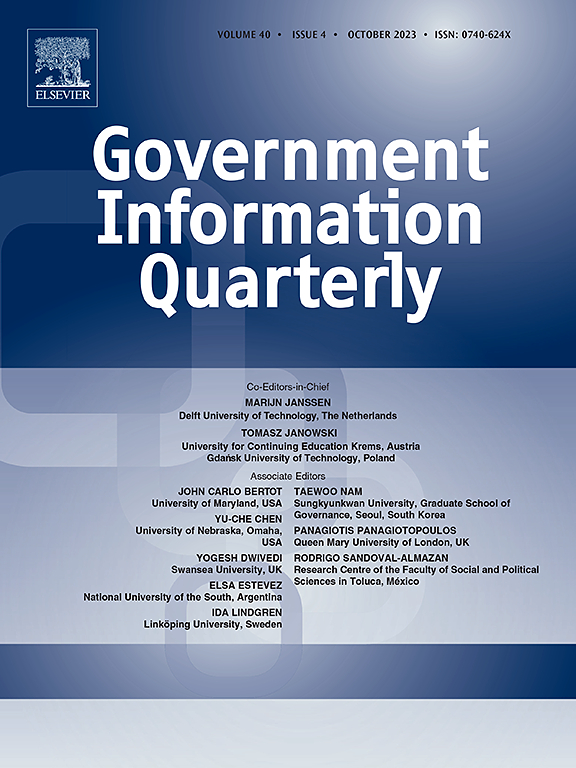建立共识:协调韩国的人工智能道德准则和法律框架,以加强治理
IF 10
1区 管理学
Q1 INFORMATION SCIENCE & LIBRARY SCIENCE
引用次数: 0
摘要
人工智能(AI)渗透到包括信息和通信技术在内的各种技术中,极大地改变了社会实践和个人惯例。虽然这带来了好处,但它也引发了对人工智能负面变化的担忧,需要谨慎的治理。本文的重点是通过提供建立连贯的法律框架的建议来减轻这些风险,以保护无辜的个人免受与人工智能相关的威胁或潜在伤害,无论是有意还是无意的。我们提出了一个框架,该框架利用大型语言模型来评估人工智能道德准则与法案之间的一致性。在技术快速发展的情况下,韩国的人工智能法律框架尤其落后,因此本文将以案例分析韩国的监管格局。本研究采用描述性分析、相关分析、聚类分析和语义分析等方法,对韩国立法文件进行全面比较。我们的发现揭示了这两种治理工具在某些方面的连续性,但在其他方面的不连续性。因此,我们建议采取措施加强人工智能监管这两个领域之间的一致性,从而促进更强大和有效的人工智能治理实践。本文章由计算机程序翻译,如有差异,请以英文原文为准。

Building a consensus: Harmonizing AI ethical guidelines and legal frameworks in Korea for enhanced governance
Artificial Intelligence (AI) permeates various technologies, including information and communication technology, significantly reshaping societal practices and individual routines. While this offers benefits, it also prompts concerns about the negative changes of AI, requiring careful governance. This paper focuses on mitigating these risks by offering recommendations for establishing coherent legal frameworks to safeguard innocent individuals from AI-related threats or potential harm, whether intentional or unintentional. We propose a framework that utilizes a large language model to assess the alignment between AI ethical guidelines and bills. A case study is conducted to analyze the Korean regulatory landscape, since Korea's AI legal frameworks particularly lag behind amid its rapid advancement of technology. This study employs a range of methods - descriptive, correlation, cluster, and semantic analyses - to offer a comprehensive comparison of Korea's legislative documents. Our findings reveal continuity in certain aspects but discontinuity in others between these two governance tools. Consequently, we suggest measures to enhance the consistency between these two realms for AI regulation, contributing to more robust and effective AI governance practices.
求助全文
通过发布文献求助,成功后即可免费获取论文全文。
去求助
来源期刊

Government Information Quarterly
INFORMATION SCIENCE & LIBRARY SCIENCE-
CiteScore
15.70
自引率
16.70%
发文量
106
期刊介绍:
Government Information Quarterly (GIQ) delves into the convergence of policy, information technology, government, and the public. It explores the impact of policies on government information flows, the role of technology in innovative government services, and the dynamic between citizens and governing bodies in the digital age. GIQ serves as a premier journal, disseminating high-quality research and insights that bridge the realms of policy, information technology, government, and public engagement.
 求助内容:
求助内容: 应助结果提醒方式:
应助结果提醒方式:


